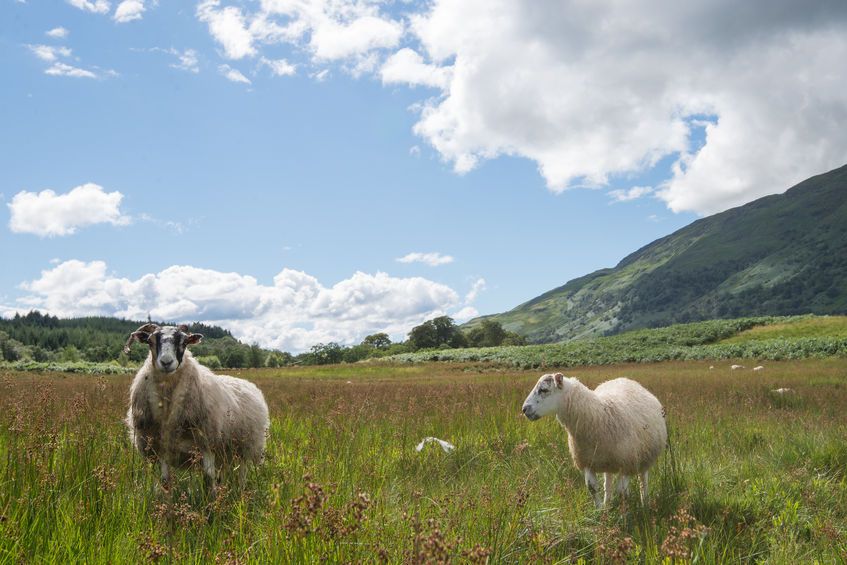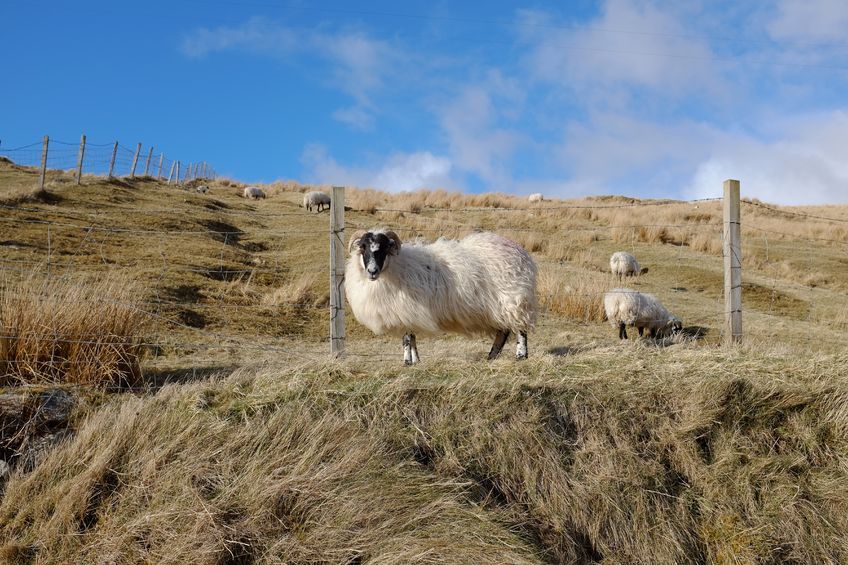
The National Sheep Association has released a special report to raise awareness about upland and hill sheep farming in the UK.
The NSA want to promote understanding of this 'complex jigsaw', and respond to criticisms from some conservationists.
Sheep farming in UK upland and hill areas provides a wide range of public goods and services, from food production and environmental stewardship to landscape management and cultural heritage.
Four farmers from England, Wales, Scotland and Northern Ireland have spoken at the launch of the report, at the NSA Sheep Event, explaining the unique role of sheep in every corner of the UK.
They discussed the three pillars of sustainability for the sector, which are economic, environmental and societal.
Upland sheep farming 'comes under threat from many quarters'
Phil Stocker, NSA Chief Executive, explains: "This sector, that is so traditional yet still acts as a cornerstone of much of the modern UK sheep industry, continues to come under threat from many quarters.

"Much of this is due to misguided policy direction and a lack of understanding of the many ‘by products’ of upland sheep farming.
"These public goods go beyond its core agricultural outputs of food and wool; they include its foundation of fragile rural economies and communities, its creation and maintenance of landscapes and environments, and its contribution to tradition and heritage.
"All of this adds to our ecosystems and our sense of enjoyment and wellbeing, yet is rarely recognised or valued.
"Our aim is to convince decision makers of the unique contribution upland sheep farming provides and also to set some challenges to the industry itself by offering a strategic direction that should safeguard its future."

The association believes the timing of this report is crucial, given the difficult decisions needing to be made over the future of agricultural support once the UK leaves Europe.
Mr Stocker continues: "This report will form the basis of many of the conversations we have over the coming months, as it is important the hills and uplands, home to some of the most iconic landscapes in the UK, are not forgotten in the Brexit discussions.
"There has never been a more important time to understand the tri-fold contribution of economic, environmental and societal benefits."
'Poorly considered Government policy'
The Tenant Farmers Association welcomes the report, saying the sustainability of these systems has been placed in 'jeopardy by poorly considered Government policy.'
TFA Chief Executive, George Dunn said: "The uplands of Britain are farmed by a greater proportion of landless individuals through farm tenancies, grazing agreements and rights of common than in the lowlands.
"Generations of skilled individuals have managed ruminant livestock in hill areas to produce a basket of high quality economic, environmental and social outputs.
"However, deficiencies within the supply chain and a lack of appreciation for the multi-functional benefits that grazing livestock, particularly sheep, can supply in upland areas, has been jeopardised by poorly considered policies.
"For too long upland sheep farming has been at best marginalised and at worst vilified by uninformed policymakers and some environmental commentators.
"Sheep farming in the uplands provides a healthy source of nutritious food, natural fibre, landscape, biodiversity, soil quality, flood risk management, water quality, and opportunities for tourism.
'Farmers must be adequately rewarded'
"Sheep farmers must be adequately rewarded for the full range of outputs resulting from their management and the report from the NSA provides a blueprint for achieving this," said Mr Dunn.
"All policymakers with an interest in upland management must read and digest this NSA report.
"The TFA’s proposed agricultural policy for a post-EU Britain has called for a new framework that ensures the sustainable development of upland areas by refocusing support on ruminant livestock production as the foundation of sustainable upland management.
"This strategic priority can be met for the sheep sector by taking on board the recommendations and aspirations set out in the NSA report," said Mr Dunn.
"The TFA has called on all farming organisations to work together to produce a credible plan for agriculture in a post-EU environment and the leadership shown here by the NSA for the sheep sector is to be applauded," said Mr Dunn.
